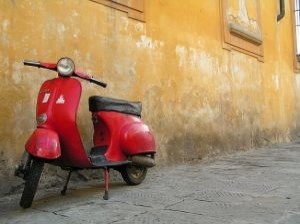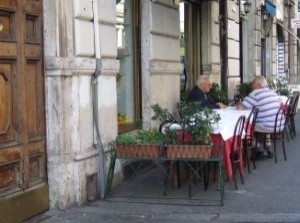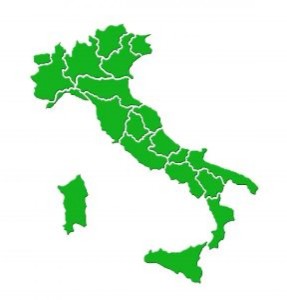10 Best Italian Pick-Up Lines
Posted on January 30th, 2014 by Anna in Uncategorized | No Comments »
 Italian, as they say, is the language of love. So if you’re trying to introduce yourself to a possible romantic interest while in Italy, you have a world of amore at your fingertips. However, if you’re a newcomer to the world of dating in Italian, you may find yourself a bit tongue-tied. Here are a few crowd-pleasers you can remember to use on that gorgeous ragazzo or ragazza you meet at the club, with hopes of that first short, awkward conversation sparking into something more.
Italian, as they say, is the language of love. So if you’re trying to introduce yourself to a possible romantic interest while in Italy, you have a world of amore at your fingertips. However, if you’re a newcomer to the world of dating in Italian, you may find yourself a bit tongue-tied. Here are a few crowd-pleasers you can remember to use on that gorgeous ragazzo or ragazza you meet at the club, with hopes of that first short, awkward conversation sparking into something more.
- Tu sei una stella… la mia stella. Romantic and poetic, with allusions to Dante—it translates to, “You are a star… my star,” and if appropriately timed and delivered in a perfect Italian accent is sure to make the object of your affections weak at the knees.
- La tua bellezza sorpassa il sole. “Your beauty surpasses the sun.” Also exceedingly poetic—try not to use this in combination with the previous line, or it may come off as smarmy and insincere.
- Hai degli occhi belli. “You have lovely eyes.” A good conversation starter for anyone, male or female, and it won’t come off as overly forward.
- Posso offrirti una bevanda calda per sciogliere il ghiaccio? “Can I buy you a hot drink to break the ice?” Equal parts clever and corny, this may appeal to a man or woman who has a good sense of humor. It also gets points for being straightforward and not depending on flattery.

- Complimenti alla mamma, sei fantastica! “ Compliments to your mother—you’re fantastic!” Adorable, if smacking slightly of Italian men’s tendency to be tied to their mothers’ apron strings. At any rate, this one is more popular in the southern provinces.
- Baciame. “Kiss me.” Again, props for not beating around the bush. You will probably have more success with this if it comes strategically placed after some sort of preliminary conversation.
- Qual’è il tuo segno zodiacale? “What’s your zodiac sign?” It’s a bit old-fashioned, but Italians are often superstitious, and this can lead to an interesting conversation on astrology and the effects it has on personality.
- Voglio vederti stasera. “I want to see you tonight.” Brooding, domineering, and mysterious—make sure you’re wearing a good suit and standing in dramatic lighting. Walk away without another word and don’t look back. Light a cigarette if you have any on you.
- Ciao, bella! “Hello, beautiful!” It doubles as, “Goodbye, beautiful!” as well, and makes you come off as playful and unintimidating.
- Vorrei che tu mi insegni italiano. “I would like you to teach me Italian.” The most insidious of pick-up lines, it will cater to the other person’s desire to teach you their language while giving you a chance to enact further romantic schemes. Get a head-start on your Italian lessons by looking into one of our Italian courses or send us an enquiry for further information. Soon enough, you too with be a master at the fine art of what the Italians call amoreggiare.



















